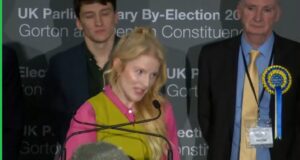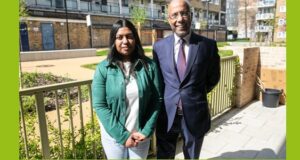Labour and the National Union of Teachers have derided the Tories’ plans to test primary school pupils on their times tables. They seemed to have a point, as both the Prime Minister and the Education Secretary refused to answer times tables questions put to them by journalists.
Pupils leaving primary school (usually aged eleven) are to be tested on their times tables. The Government has learned from past mistakes and will be piloting the new tests in some 80 schools this summer, with a view to implementing the tests across the country in 2017. The tests will be set nationally and pupils are to take them online – avoiding criticism that they will be adding to teachers’ workload. However, teachers are not entirely off the hook: they will now have to spend more class time on learning tables by wrote, which will be difficult in some classrooms. Also, the online system means that speed of response will be one of the tested factors.
The plans were announced by Tory Education Secretary Nicky Morgan on Sunday –timed to hit the Sunday online papers and politics programmes on radio and TV. With no other government announcements this Sunday, this should have been the talking point of the day – showing that the Tories are serious about education and improving standards. It hasn’t really worked out.
•First, the plans sound very old fashioned because the 11 and 12 times tables will be included. These tables were useful when the UK currency was based on twelve pence to the shilling, but have been much less useful since the UK adopted decimal currency in 1971.
•Second, the Government has confused “maths” with “arithmetic”. Ms Morgan insisted today that maths was a crucial aspect of a good school education (of course it is), but times tables tests do not test maths, or mathematical ability or the standards of maths teaching. They test memory.
•Third, Ms Morgan has made it clear that pupils’ results will be used to judge teachers. It is not the first time the Tories have tried to assess teachers on the basis of bald results. However, if you compare a teacher in a county school in the shires, where pupils have been brought up with all the advantages that help them remember tables, with a teacher in an inner urban school, where pupils have so many challenges to face – if the pupils get the same results, which teacher is doing the better job?
•Fourth, Ms Morgan admits that most primary schools are helping their pupils to attain good standards. She justifies these tests (applied to all pupils) on the basis that some pupils “continue to struggle”. She suggests that the tests will help teachers identify pupils who may be falling behind: they won’t, they will just identify pupils who are not very good at remembering tables. Some causes of children falling behind – family break-up, domestic violence, homelessness – may not be within the power of teachers go change.
•Fifth, Ms Morgan warns that the tests will help identify “areas where children aren’t being given a fair shot to succeed” (ie, the areas which come up with the worst results). Chillingly, she goes on to say that once these areas have been identified, the Government can “target” them. Look out for more schools being put in special measures – and handed over to the private sector.
•Sixth, nothing proves that these new tests are a political measure rather than an educational one more than the fact that achievement in maths is going up at the moment, not down. Last year (2015), 80% of Year 6 pupils (the final year in primary school) achieved Level 4 in maths, an improvement of two percentage points over the previous year.
Labour’s Shadow Education Minister, Lucy Powell, dismissed the test plans, pointing out that the school system is facing a chronic shortage of maths teachers – which is the biggest obstacle in the way of improving performance. Ms Powell also pointed out that times tables are already part of the numeracy curriculum, so pupils are already tested on performance.
Her words were echoed by Christine Blower, General Secretary of the National Union of Teachers, who also pointed out that at the moment primary school pupils have to learn their times tables by the end of year 4 – two years before the Government’s new tests will kick in. Ms Blower added that British pupils are already among some of the most tested pupils in Europe and doubted that this was actually improving their education.
Ironically, neither the Secretary of State nor the Prime Minister were good adverts for their own policies. Ms Morgan refused to answer any times tables questions on any of the interviews she gave on Sunday morning. David Cameron followed suit. During an interview for 5 News he said he was pleading the “Nicky Morgan defence” and would not answer in case he gave a wrong answer. Maybe MPs should be forced to sit the new national tables tests to show pupils how useful this knowledge is.
[Adverts]
 East London News A Force for the community…
East London News A Force for the community…




